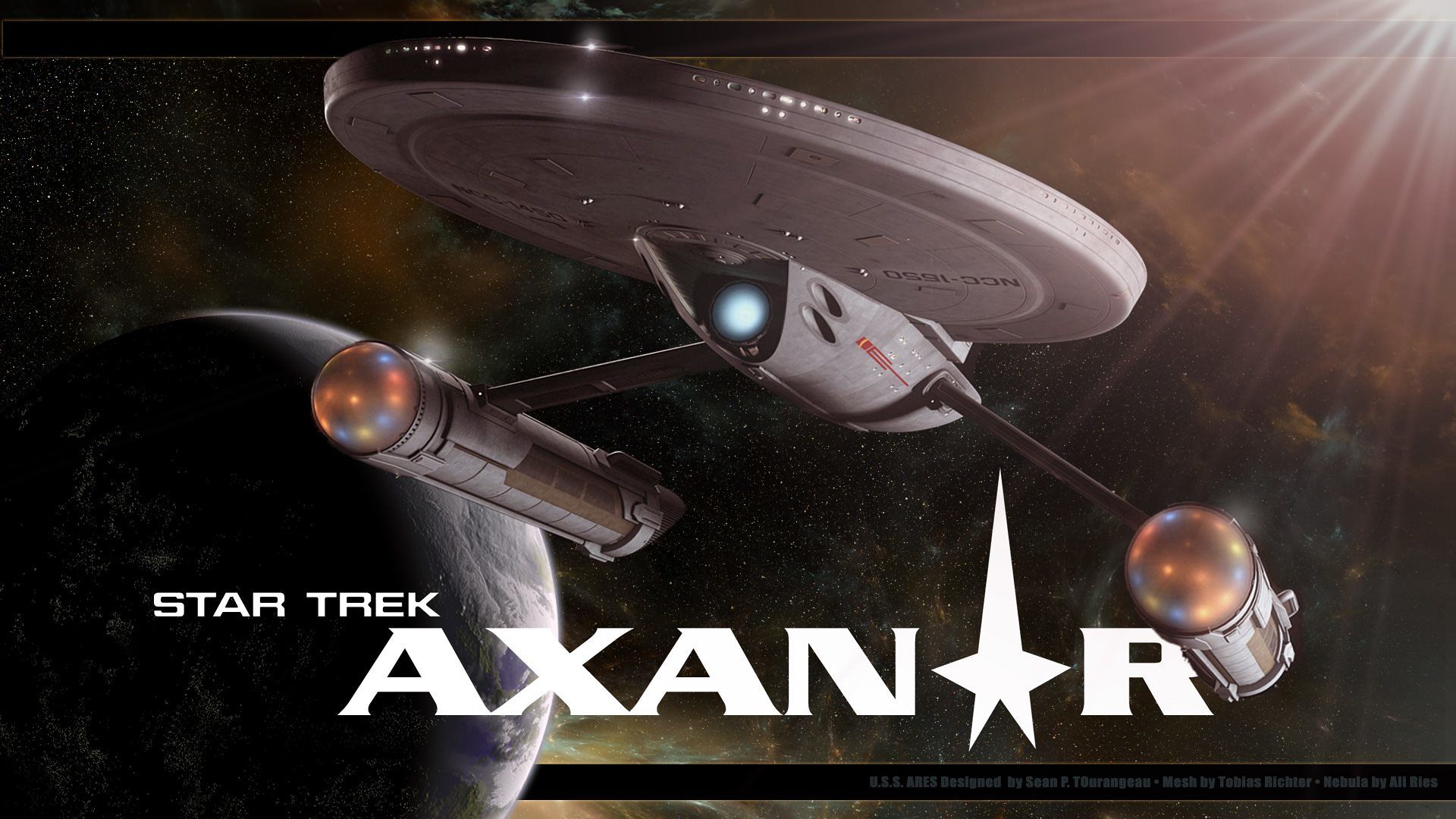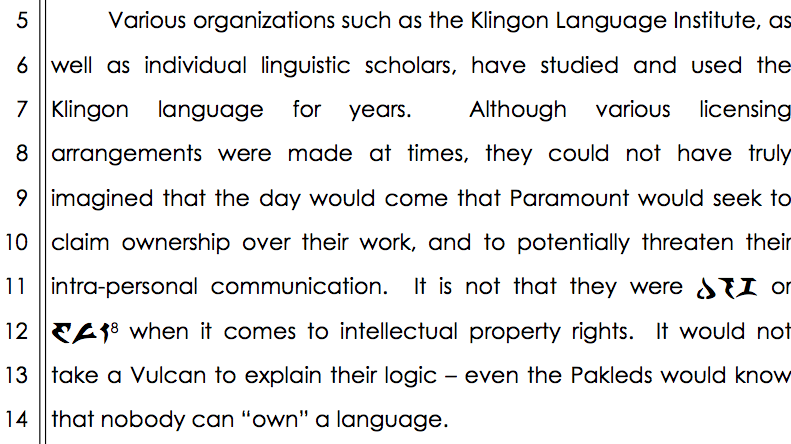
It’s been on the radar for a while now that Paramount and CBS, owners of the film and TV rights to the ‘Star Trek’ franchise, have sued the makers of the fan-fiction production ‘Star Trek: Axanar.’ The crux of the argument, from the Hollywood production companies’ side, is that ‘Star Trek’ is, simply put, their intellectual property and fan-created productions (while once fun and kitschy, in a low-budget approach) are infringing on the companies’ rights by utilizing story elements that they don’t have the right to use. Through the back and forth between the two sides, one intriguing point of the legal battle has emerged: whether a company can copyright a language – in this case, the Klingon language.
Axanar Productions, the group working to create the fan film and the defendants of the lawsuit, responded to Paramount & CBS’s lawsuit by demanding particulars of which specific elements of ‘Star Trek’ the companies believed to be copyright-protected. The response was a sizable laundry list of Trek familiars – among them were the Federation insignias, the gold shirts of Federation Command, and Vulcan’s pointy ears – but the one item that stuck out to the defendants was the fact that Paramount/CBS claimed entitlement to the Klingon language.
The defendants didn’t take kindly to this and crafted a response that refuted Paramount/CBS’ claim on pretty much every item on the list. When it came to the Klingon language, however, they got real specific in their retort, even going so far as to claim precedence in a court case from all the way back in 1879. According to the filed response from Axanar Productions:
“The Klingon language itself is an idea or a system, and is not copyrightable. As the Supreme Court held in the context of a system of bookkeeping, although copyright protects the author’s expression of the system, it does not prevent others from using the system. Baker v. Selden, 101 U.S. 99, 101 (1879). The mere allegation that Defendants used the Klingon language, without any allegation that Defendants copied Plaintiffs’ particular expression of that language, is therefore insufficient to state a claim for copyright infringement as to any protected element.”
Paramount and CBS were quick to return fire. The plaintiffs replied thusly, via a brief authored by law firm Loeb & Loeb:
“This argument is absurd since a language is only useful if it can be used to communicate with people, and there are no Klingons with whom to communicate. The Klingon language is wholly fictitious, original and copyrightable, and Defendants’ incorporation of that language in their works will be part of the Court’s eventual substantial similarity analysis. Defendants’ use of the Klingon language in their works is simply further evidence of their infringement of Plaintiffs’ characters, since speaking this fictitious language is an aspect of their characters.”
Axanar Productions is not alone in this David-versus-Goliath-esque fight, however. The Language Creation Society has jumped into the fray, filing a “friend-of-the-court brief” (yes, that’s a real thing). In their brief, which hilariously includes actual portions written in Klingon, they acknowledge that the Klingon language was created by Paramount in 1984 specifically for usage in the film ‘Star Trek III: The Search for Spock,’ but that the language has since taken on a life of its own:
“Before that, when actors played Klingons in Star Trek television programs or movies, they simply uttered guttural sounds or spoke in English (Federation Standard). Given that Paramount Pictures commissioned the creation of some of the language, it is understandable that Paramount might feel some sense of ownership over the creation. But, feeling ownership and having ownership are not the same thing. The language has taken on a life of its own. Thousands of people began studying it, building upon it, and using it to communicate among themselves.”
The entire brief can be read online – with both Klingon and English components – by clicking here. Below is included a small screen capture of a portion, as most websites (ours included) simply don’t have the capacity to produce Klingon fonts on their pages.
Source: The Hollywood Reporter
When asked what he wanted to eat at the Back to the Future Cafe, Tony Schaab really had no choice but to answer “Chicken!” A lover of most things sci-fi and horror, Tony is an author by day and a DJ by night. Come hang out with Tony on Facebook and Twitter to hear him spew semi-funny nonsense and get your opportunity to finally put him in his place.

